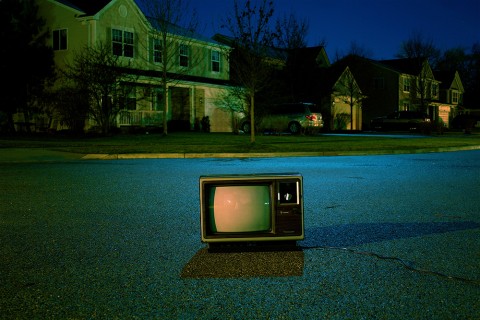We all sat in chairs against the wall, tubes plugged into us, poison muddying up our blood. All of us in a line: the man tapping out rhythms on his thigh, the woman in the loose headscarf whose veins shone beneath the waxy skin of her temples, the woman knitting fretfully, the guy mouthing the words of a song only he knew, and me, a woman holding a newspaper I wasn’t reading. It was a day old — they always were — and the crossword was filled in. I stared at the letters written in pen, inked in so certainly, and tried not to think of pain or nausea or dying. We didn’t speak. Maybe we knew if we did we’d crack open and everything would spill out.
Once in my first round, I said hello to the woman next to me and she started describing her grandmother’s sourdough bread recipe. She talked about the starter brought over from Europe generations ago, about fermentation, about knocking back the dough, kneading but not too much. “Write this down,” she said halfway through, her dried lips like fossilized shells. “I don’t have children.” We don’t talk, because talking makes you remember. The tapping, the knitting, the mouthing, the not-reading — they let you forget. I wanted to forget that my body was a system of bones rising to the surface. Hips like shark fins. Shoulder blades like bat wings. My rib cage was a dark angel unfolding beneath my breasts. I wasn’t sure how much was left to rise to the surface.
Three weeks later, for my second treatment, a new patient was talking to the television mounted in the corner of the room. He was twenty or so, maybe fifteen years younger than me. He was playing along to Jeopardy!, getting nearly every one right, answering in questions like he was supposed to: What is Chernobyl? Who is Elizabeth Taylor? What is the Donner Party? I kept track of his score in my head.
When he was back for my next session, I said to myself …and our returning champion, a student from Buffalo, New York, whose one-day cash winnings total $16,500. Once again, he knew almost everything. The man stopped tapping. The woman’s knitting needles stilled. We all watched him and forgot about the wars our bodies were losing or winning or lost inside the fog of. When the show ended, the woman with the temples removed her headscarf and looked at the young man. She nodded her bare head as if to say this is what I know.
He came back a third time and a fourth. I wrote his scores in the margins of the old newspapers. On the fifth visit, the man who mouthed songs to himself didn’t show, his chair sat empty. We were probably all imagining the poisoned blood drained to make way for new chemicals, machines opening up holes in the earth, bodies descending into unknown darkness. The other man’s leg tapped out a 21-gun salute. The click of knitting needles echoed a shovel blade sliding into loose dirt. Those were the only sounds until Jeopardy! started, until the new patient leaned back in his chair and recited his litany of right answers, and then it was like the sun poured in. The room warmed and I knew there were no chemicals, no holes in the earth. If someone left, someone was healed. Every answer was a step towards the door, a step towards a time after all this.
On the sixth session, I spoke to him. When Jeopardy! ended I said, “You know your trivia.” He nodded but didn’t look at me. None of us looked at each other straight on. We were all gaunt, honest mirrors. “There’s something small in my gut,” I said, the words falling from my cracked mouth. “Will it be okay?”
“What is: how should I know?” he said, but then he looked at me. He saw the pain on my face and his softened. “This your first round?” I shook my head. “Me neither,” he said. He pointed at the television. “They’re re-runs,” he said. “I just remember.” Around him hands stilled, a scarf-clad head turned towards him. This was just his method to forget, his crossword all inked in. There was no knowing in this room, just waiting. They’re re-runs, I thought, and what I wanted to say but couldn’t was aren’t we all.
On my last session, he wasn’t there. No one knew any answers but we didn’t turn the show off. We just let those pretaped people haunt us. We added it to the taps, to the yarn, to yesterday’s fading words on dingy paper. It wasn’t until he was gone that I remembered how pale, how thin his face was. His smile split open like a shallow wound. I asked a nurse to tell him his score when he came back. “81,500,” I told her. The paper-moon smile waned. At first, I thought she’d forgotten him. But she hadn’t. She was just searching my face for the words. “He’s okay?” I asked. My question was an answer.


